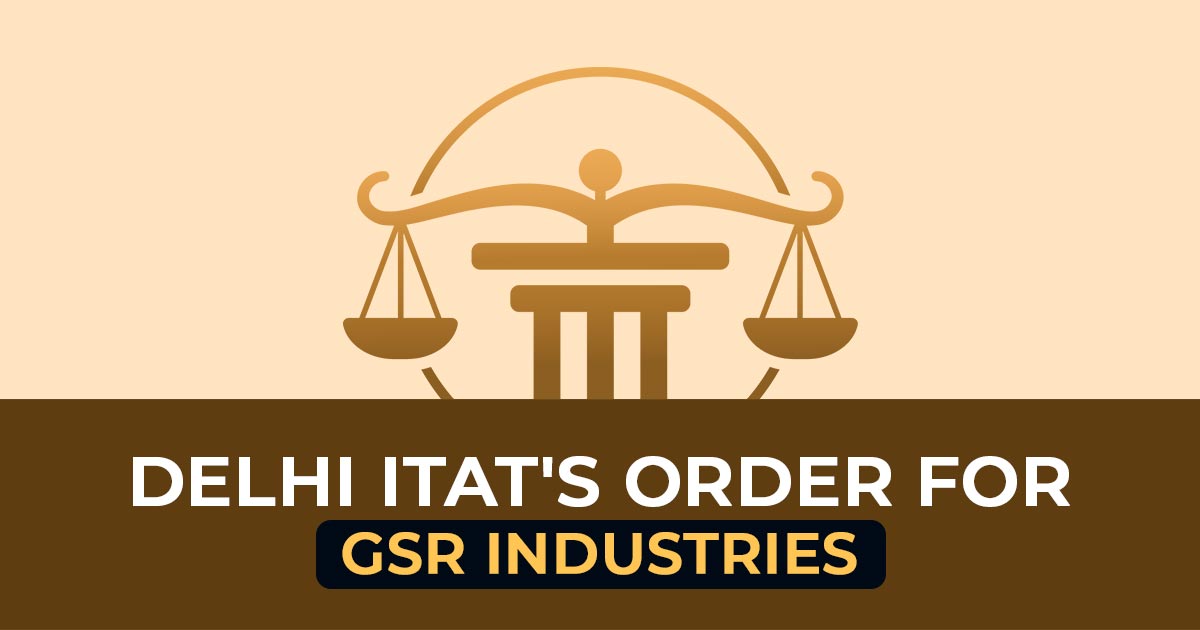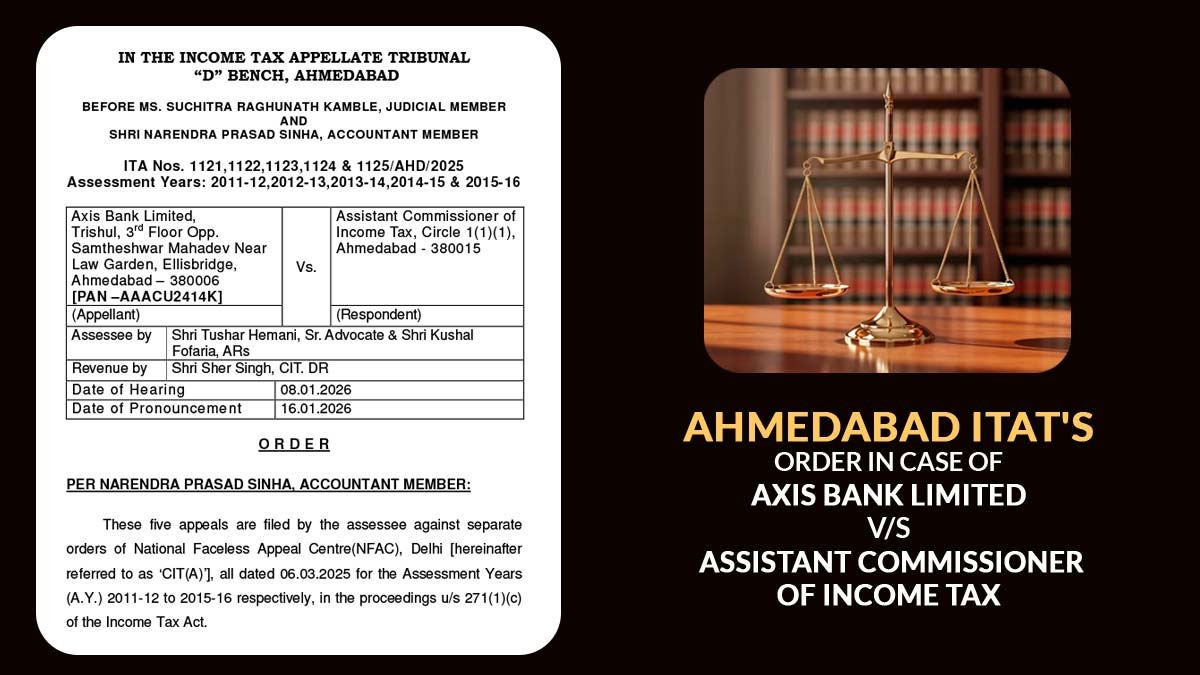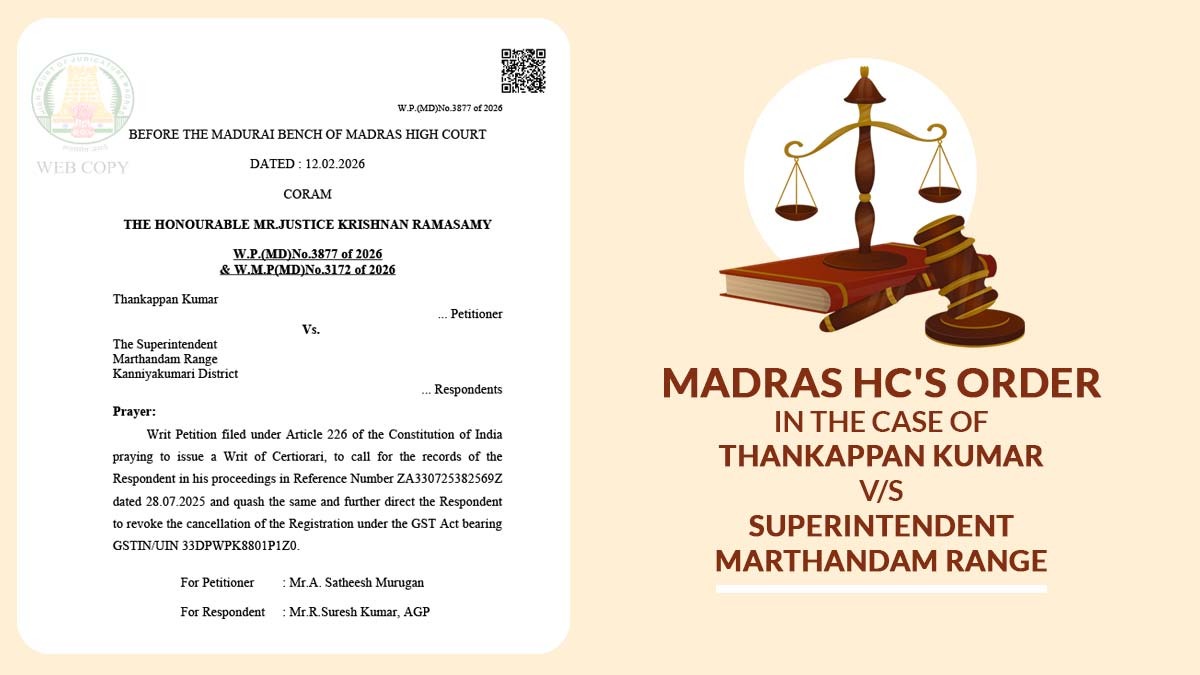
In a ruling that has captured the attention of tax professionals and businesses alike, the Income Tax Appellate Tribunal (ITAT) in Delhi furnished its verdict on the case between GSR Industries and the Deputy Director of Income Tax (DDIT).
This case judged dated 26 December 2023, rotates about diverse problems related to income tax assessment under the Income Tax Act, 1961, concentrating on sections 143(3), 144C(13), and 153(1), among others. This blog furnishes an exhaustive investigation of the matter, underscoring the points of opinion, legal interpretations, and the ITAT’s decision behind its decision.
Important Conflict Points and Background
GSR Industries filed the petition, on 1st April 2010 a partnership firm is been incorporated, contesting the order issued via the AO dated 21st June 2023. The major part of the issue is that in the assessment proceedings for the financial year, the taxpayer raised distinct foundations contesting the validity and the closures that the AO drew and therefore, the Dispute Resolution Panel (DRP).
What are the Key Problems?
- Timeliness Assessment Order: An additional problem was the assessment order timing under section 143, which, as per the appellant, was passed beyond the specified time, rendering it time-barred and invalid based on precedents and statutory provisions.
- Purpose of the Assessment Order: The petitioner challenged the order’s grounds, contending it overlooked important proof like the credit note issued and its accounting implications, directing to a wrong closure of suppressed sales and other corresponding differences.
- Disregard for General Benchmarking: GSR Industrie’s transactions had been constantly benchmarked against a cost plus 15% markup, a practice previously accepted by the department, making any variation in this assessment questionable.
- Real Income Theory and Mistake Transactions: The taxpayer contended that the AO and DRP did not value the real income theory, directing to the taxation of hypothetical income, among other misinterpretations concerning credit note adjustments and benchmarking practices.
- Section 144C Tax Compliance: Contended by the petitioner that the assessment proceedings were not valid since they failed to follow the mandates of Section 144C which needs the issuance of a draft assessment order to the qualified taxpayer. In this case, the absence of a Transfer Pricing Officer’s (TPO) order under section 92CA(3) was an influential point of argument, proposing a procedural anomaly in the assessment process.
ITAT Judgement Analysis
ITAT while investigating has revealed various flaws in the AOs and DRPs assessments which focus on procedural and factual inaccuracies.
- Real Income Theory and Transaction Adjustments: The tribunal underscores the principle that taxation must be based on real income. It revealed that the AO’s measure to tax hypothetical income was not evident. It was stated that the credit note adjustments incurred for the effective objectives were legal and were within the tax provisions.
- Assessment Proceedings validity- ITAT agreed with the petitioner’s opinion that the assessment proceedings were flawed because of the non-compliance with the procedural needs of Section 144C particularly the absence of a TPO order as a precursor to the draft assessment order issuance.
- Assessment Order Timing: The tribunal recognized the legal bindingness of the timelines specified under section 153(1), confirming the contention of the applicant that the assessment order was passed beyond the permissible period, making it invalid.
- Appreciation of Proof and Benchmarking Practices: Opposite to the findings of the AO, ITAT considers the evidentiary credit notes value and the effective measures that the taxpayer chose. It was seen that the transactions between the taxpayer and its associated enterprise (AE) were benchmarked successively at arm’s length, a practice that has been obtained previously through the council.
Section 133(6) of the Income Tax Act, 1961
ITAT’s review brought to light the issue of non-compliance with the notices furnished under section 133(6) of the act. An influential point is emphasised by the tribunal, no disallowance can be made only based on non-compliance by the parties to the notices issued under this section.
The same assertion is important underscoring the requirement for the assessing officer to lay on substantive proof instead of procedural non-compliance to do any disallowances.
In the same case, the stance of the tribunal reaffirms the principle that tax assessments must be grounded in the factual preciseness and the merits of each case instead of penalizing the administrative non-responses.
Closure: The decision of ITAT in favour of GSR industries on a distinct basis including the assessment invalidity because of non-compliance with the procedural needs, the unjustification extension of the assessment timelines, and the wrong interpretation of factual situation shows an influential precedent in the interpretation and the application of the tax regulations. The ruling shows the importance of complying with the procedural mandates and acknowledging the substantive evidence and taxpayers’ practices.
Read Also: A Full Guide to Income Tax Compliance with Impact in India
Tax experts and organizations need to carefully examine this ruling to grasp its potential impact on future assessments, particularly in terms of adhering to procedural obligations, implementing transfer pricing regulations, and the significance of maintaining comprehensive and precise records to support their tax categories.
The GSR Industries vs DDIT case not only brings attention to the complex nature of tax legislation but also acts as a prompt for recognizing the judiciary’s responsibility in guaranteeing equity and impartiality when interpreting and enforcing these laws.
| Case Title | GSR Industries Vs DDIT |
| Case No. | ITA No. 2060/Del/2023 |
| Date | 26.12.2023 |
| Assessee by | Sh. Prakash. K. Sinha, Sh. Kartik Garg |
| Revenue by | Sh. Vizay B. Vasanta |
| Delhi ITAT | Read Order |









